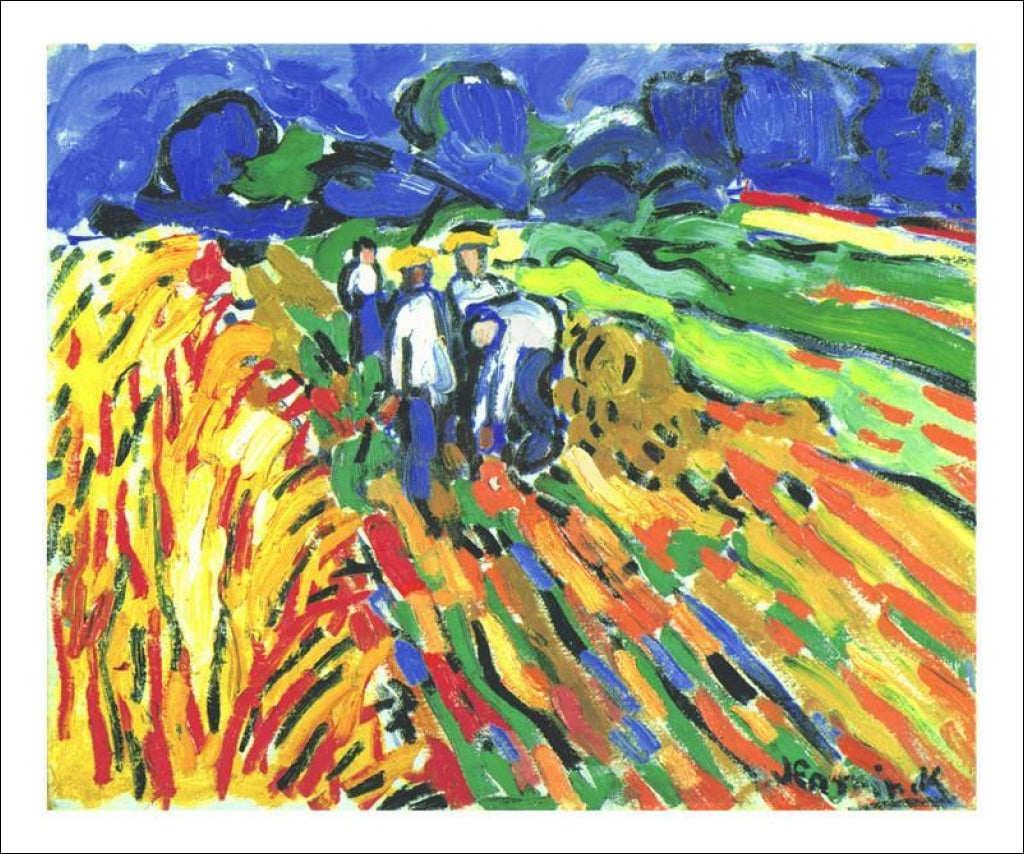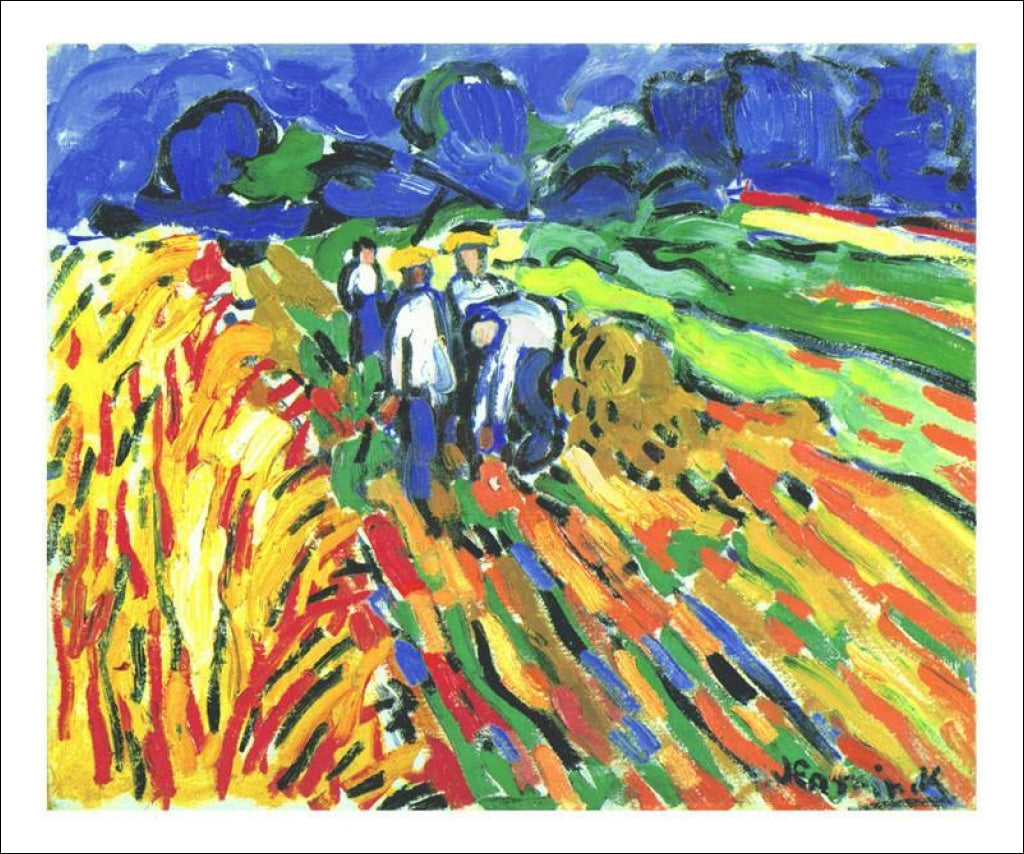1
/
of
1
Les Ramasseurs de Pommes
Les Ramasseurs de Pommes
Regular price
$39.00 USD
Regular price
Sale price
$39.00 USD
Unit price
/
per
Shipping calculated at checkout.
Couldn't load pickup availability
Share
Maurice de Vlaminck was born on Rue Pierre Lescot in Paris. His father Edmond Julien was Flemish and taught violin and his mother Joséphine Caroline Grillet came from Lorraine and taught piano. His father taught him to play the violin.[3] He began painting in his late teens. In 1893, he studied with a painter named Henri Rigalon on the Île de Chatou. In 1894 he married Suzanne Berly. The turning point in his life was a chance meeting on the train to Paris towards the end of his stint in the army. Vlaminck, then 23, met an aspiring artist, André Derain, with whom he struck up a lifelong friendship. When Vlaminck completed his army service in 1900, the two rented a studio together, the Maison Levanneur which now houses the Cneai,[5] for a year before Derain left to do his own military service. In 1902 and 1903 he wrote several mildly pornographic novels illustrated by Derain.[6] He painted during the day and earned his livelihood by giving violin lessons and performing with musical bands at night.
Maurice de Vlaminck, 1905-06, Barges on the Seine (Bateaux sur la Seine), oil on canvas, 81 x 100 cm, Pushkin Museum, Moscow
Vlaminck participated in the controversial 1905 Salon d'Automne exhibition. After viewing the boldly colored canvases of Vlaminck, Henri Matisse, André Derain, Albert Marquet, Kees van Dongen, Charles Camoin, and Jean Puy, the art critic Louis Vauxcelles disparaged the painters as "fauves" (wild beasts), thus giving their movement the name by which it became known, Fauvism.
View full details
Maurice de Vlaminck, 1905-06, Barges on the Seine (Bateaux sur la Seine), oil on canvas, 81 x 100 cm, Pushkin Museum, Moscow
Vlaminck participated in the controversial 1905 Salon d'Automne exhibition. After viewing the boldly colored canvases of Vlaminck, Henri Matisse, André Derain, Albert Marquet, Kees van Dongen, Charles Camoin, and Jean Puy, the art critic Louis Vauxcelles disparaged the painters as "fauves" (wild beasts), thus giving their movement the name by which it became known, Fauvism.

-
High Quality Reprints
Every piece of art is printed using premium materials. We carefully package and deliver your order to your door.
-
Wholesale Orders
We welcome wholesale inquiries on some of our products. Click here to learn more about our offering.
Sign Up for Our Newsletter
Get a sneak peek on upcoming promos and get 10% off your first order.

